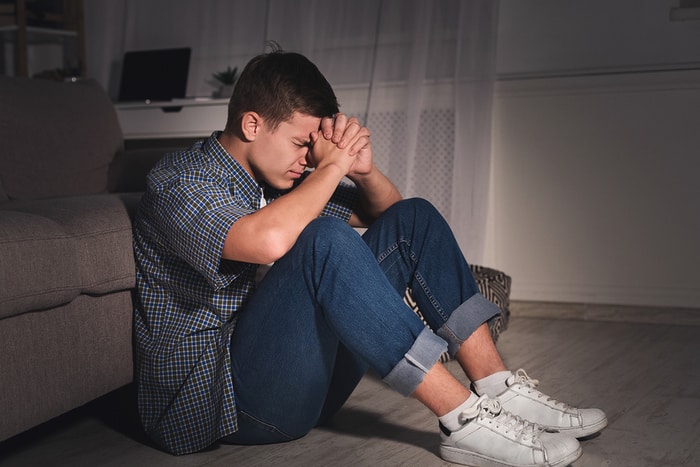For millions of people, anxiety is an everyday reality. Anxiety disorders are the most common form of mental health affliction in the United States, experts say, and it’s impossible to say how many other people suffer from anxiety without proper diagnosis and treatment.

Perhaps you suffer from anxiety yourself. If so, what can you do about it? There are options for treating anxiety and reducing its troublesome symptoms, including the ever-popular supplement CBD. Let’s talk about CBD and your other options for controlling and reducing anxiety.
CBD for Anxiety Treatment
CBD oil and other forms of CBD can do a lot for a person’s health. CBD is derived from the marijuana plant, which itself has medical uses: Marijuana has been proven to help with everything from cancer symptoms to anxiety. Marijuana has these benefits thanks to cannabinoids, which are the compounds within the plant that affect the human body and mind.
Arguably the most famous of these is THC, which is primarily responsible for marijuana’s “high.” CBD, by contrast, is non-psychoactive—but chock full of medical benefits.
Experts believe that CBD can help with nausea, inflammation, and other health issues. Most importantly for our purposes here, CBD has been shown to reduce symptoms of anxiety. That’s a big deal in the natural health community, explain the experts at Bloom & Oil, a website specializing in selling health-related products like essential oils, CBD, and more.
CBD can be taken easily and safely. CBD vape oils provide great alternatives to traditional smoking methods, which can be terrible for those who suffer from asthma and which may even lead to lung diseases. CBD oils, tinctures, edibles, and more offer a wide range of choices to folks hoping to make CBD a part of their daily health routine.
Rest Up
CBD’s ability to reduce anxiety symptoms could make it easier to fall asleep, too—and that’s very important, explain pulmonary and sleep doctors in Somerset, NJ. These specialists diagnose and treat sleep disorders like sleep apnea and narcolepsy (as well as pulmonary disease and other major health issues), so they know what they’re talking about when they say that sleep and anxiety issues are closely connected.
You don’t need a couple dozen years experience dealing with sleep disorders to know this, though; our own experiences are just as clear as the scientific studies are. Who hasn’t been cranky, irritable, and stressed-out after a bad night’s sleep?
A single night of insomnia can wreck a whole day of work or play, and experts agree that prolonged problems with sleep can really mess with a person’s mental health. Poor sleep patterns can trigger and exacerbate anxiety.
On the flip side, better sleep can reduce your anxiety. So invest in your sleep: Get a sleep mask or blackout curtains, earplugs or a white noise machine, softer bedding, and whatever else it takes to get yourself to sleep. Not all sleeping pills are FDA approved, but you can bet that the FDA would sign off on you investing in a new pillow!
Get Professional Treatment
Changing your sleep habits isn’t the only way to fight anxiety and improve your mental health. Because your mental and physical health are so closely connected to each other, there are a ton of ways to make small changes in your lifestyle and reap big rewards in mental health. Eating better, exercising more, and following your doctor’s advice will all make your life happier as well as healthier.
But make no mistake: Your quality of life isn’t your responsibility alone. Making changes to your habits is important, but don’t treat an important health issue as a strictly private matter. Just as you rely on your primary care physician for regular check-ups, so should you turn to mental health professionals for help with your anxiety. If you invest in your health, better things will follow.
